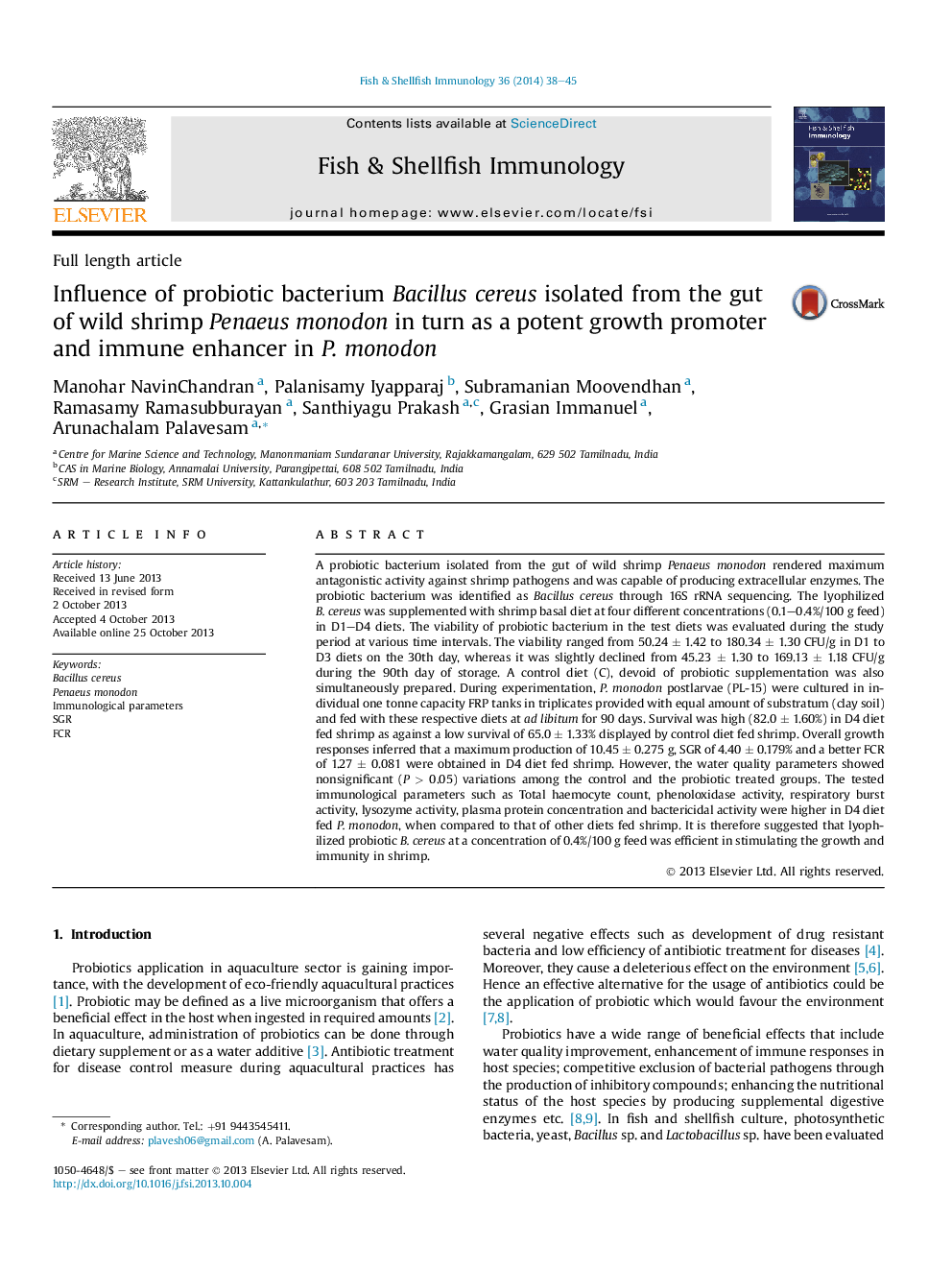| کد مقاله | کد نشریه | سال انتشار | مقاله انگلیسی | نسخه تمام متن |
|---|---|---|---|---|
| 2431805 | 1106773 | 2014 | 8 صفحه PDF | دانلود رایگان |

• A probiotic bacterium Bacillus cereus was isolated from shrimp gut.
• Lyophilized probiotic bacterium was supplemented in basal diet at 4 concentrations.
• These probiotic bacterium added diets were fed to shrimp Penaeus monodon for 90 days.
• Overall growth response of probiotic diets fed shrimp was more than control shrimp.
• Immunological characters were higher in probiotic diets fed shrimps than control.
A probiotic bacterium isolated from the gut of wild shrimp Penaeus monodon rendered maximum antagonistic activity against shrimp pathogens and was capable of producing extracellular enzymes. The probiotic bacterium was identified as Bacillus cereus through 16S rRNA sequencing. The lyophilized B. cereus was supplemented with shrimp basal diet at four different concentrations (0.1–0.4%/100 g feed) in D1–D4 diets. The viability of probiotic bacterium in the test diets was evaluated during the study period at various time intervals. The viability ranged from 50.24 ± 1.42 to 180.34 ± 1.30 CFU/g in D1 to D3 diets on the 30th day, whereas it was slightly declined from 45.23 ± 1.30 to 169.13 ± 1.18 CFU/g during the 90th day of storage. A control diet (C), devoid of probiotic supplementation was also simultaneously prepared. During experimentation, P. monodon postlarvae (PL-15) were cultured in individual one tonne capacity FRP tanks in triplicates provided with equal amount of substratum (clay soil) and fed with these respective diets at ad libitum for 90 days. Survival was high (82.0 ± 1.60%) in D4 diet fed shrimp as against a low survival of 65.0 ± 1.33% displayed by control diet fed shrimp. Overall growth responses inferred that a maximum production of 10.45 ± 0.275 g, SGR of 4.40 ± 0.179% and a better FCR of 1.27 ± 0.081 were obtained in D4 diet fed shrimp. However, the water quality parameters showed nonsignificant (P > 0.05) variations among the control and the probiotic treated groups. The tested immunological parameters such as Total haemocyte count, phenoloxidase activity, respiratory burst activity, lysozyme activity, plasma protein concentration and bactericidal activity were higher in D4 diet fed P. monodon, when compared to that of other diets fed shrimp. It is therefore suggested that lyophilized probiotic B. cereus at a concentration of 0.4%/100 g feed was efficient in stimulating the growth and immunity in shrimp.
Journal: Fish & Shellfish Immunology - Volume 36, Issue 1, January 2014, Pages 38–45